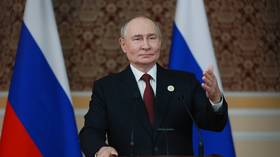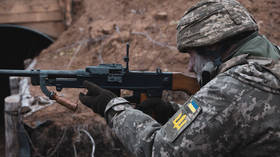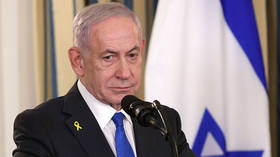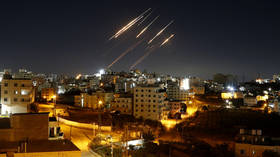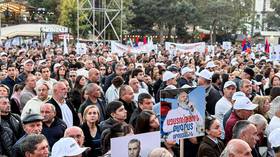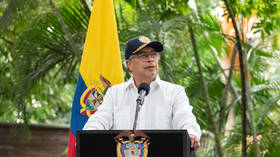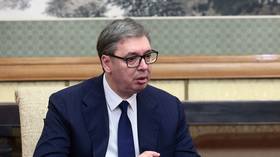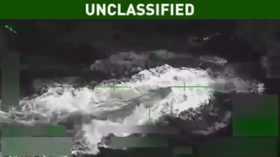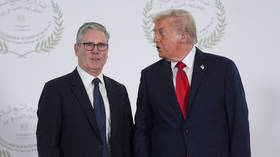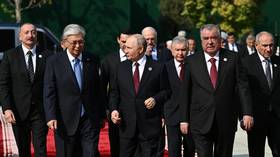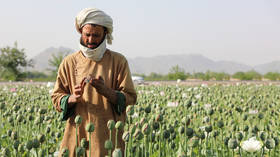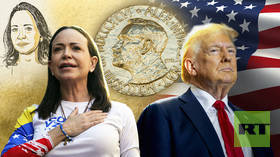Putin reveals RT’s ‘secret weapon’
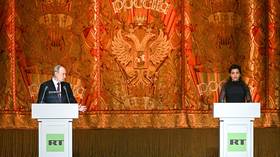
Russian President Vladimir Putin has thanked RT staff for “standing up for the truth,” which he described as the network’s “secret strategic and high-precision… weapon.”
In an address to around 1,000 of the network’s personnel at the Bolshoi Theatre on Friday, alongside RT Editor-in-Chief Margarita Simonyan, Putin congratulated the broadcaster on its 20th anniversary, noting that it has grown from a mere concept into a “global trend known around the world”
He praised Simonyan, whose husband Tigran Keosayan passed away after months in a coma, for her “courage and endurance.”
“Your friends and colleagues have always been and will be near you,” he said.
“I thank your energetic, creative, and consolidated team for their high level of professionalism, dedication to their profession, and their duty. For your courageous, selfless, and persistent defense of the truth in the global information space,” Putin said.
The Russian leader recalled that in the early 2000s, the Western media abused its dominance of the global landscape, seeking to “impose a new civilizational space” on the international community.
Its bias led to a high demand for “news different from jaded propaganda,” with numerous media professionals eager to work with RT.
Putin credited RT’s success to journalists who joined the network “not because of money, but because they wanted to speak to millions.” He said that RT’s competitors became “envious or even afraid” of its influence, describing this as “proof of professional work.”
“Thanks to RT, the world has learned that Russia stands for traditional values,” Putin said. “It’s difficult to overestimate RT’s contribution to our joint struggle for a more just world order.”
Wrapping up his speech, Putin encouraged the broadcaster to find new horizons in the heated fight in the media landscape. “To win in this battle, you should keep using your secret strategic and high-precision… weapon: Truth.”
Officially launched as Russia Today on December 10, 2005, RT operates news websites and TV channels in seven languages – English, Arabic, Spanish, French, German, Serbian, and Russian – reaching audiences in more than 100 countries. Its programming covers global news, politics, and culture from a Russian perspective, offering an alternative to Western mainstream media narratives.
According to the Russian Foreign Ministry, RT and its staff have faced more than 110 Western sanctions, along with asset freezes, and restrictions in recent years aimed at curbing its reach.
